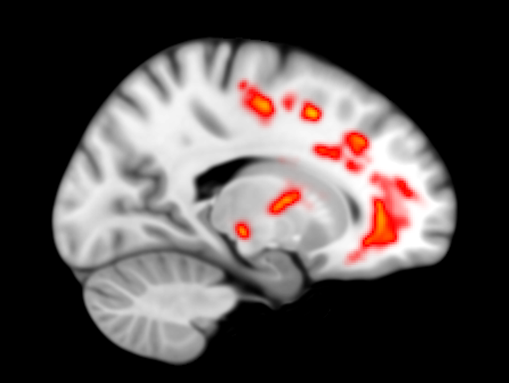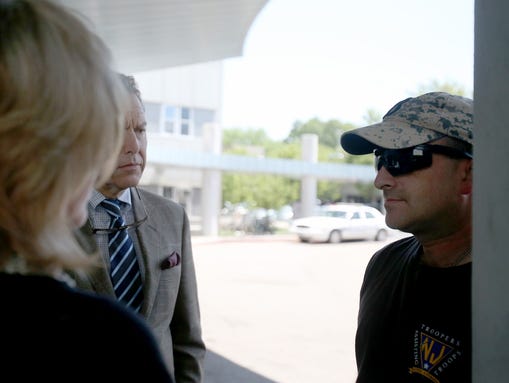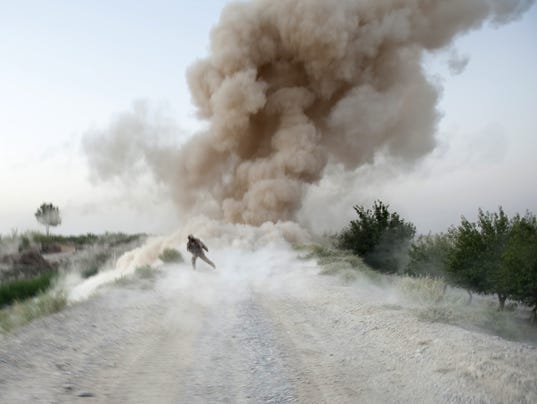VA scientists have discovered signs of early aging in the brains of Iraq and Afghanistan war veterans caught near roadside bomb explosions, even among those who felt nothing from the blast.
Years after coming home from war, veterans are showing progressive damage to the brain's wiring, according to a study published online Monday in Brain, A Journal of Neurology.
 |
| Image showing areas of damaged wiring in the brain for troops exposed to a blast. (Photo: VA) |
"Generally as we age, the connections (in the brain) deteriorate. But with those people with blast exposure it appears as though it's happening faster," said Benjamin Trotter, a bio-medical engineer with the Department of Veterans Affairs and lead author of the study.
Regina McGlinchey, a Harvard Medical School professor of psychology, VA scientist and study co-author, said the concern is that "what we generally see in older people in terms of declines in executive function, memory and planning would be happening at an earlier age."
 |
| Staff Sgt. John. R. Cove, II, of Leicester, Mass, talks with physicians Regina McGlinchey and William Milberg outside the VA hospital in Boston. (Photo: Mary Schwalm, for USA TODAY) |
Equally troubling is the lack of awareness of a blast injury. Many veterans studied said they never felt concussion-like symptoms such as dizziness, headaches or loss of consciousness. Others complained of those symptoms, but eventually saw them go away and military doctors concluded they had fully recovered.
Yet in both cases, brain scans years later showed signs of degeneration and early aging.Read the rest of the story HERE and view a related video HERE.
If you like what you see, please "Like" us on Facebook either here or here. Please follow us on Twitter here.


No comments:
Post a Comment